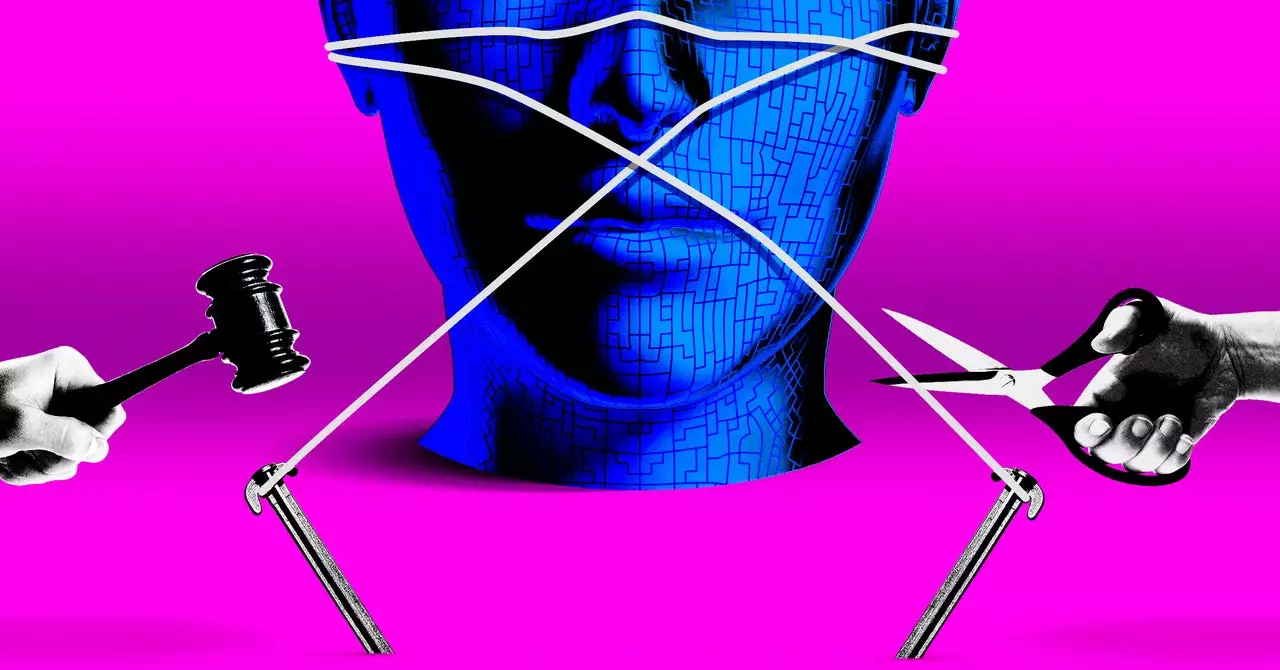At a recent press dinner hosted by the enterprise company Box, the CEO Aaron Levie made some surprising remarks regarding AI regulation. In a room full of executives from data-oriented companies such as Datadog and MongoDB, Levie expressed his skepticism about the need for extensive government intervention in the field of artificial intelligence. Unlike many of his Silicon Valley counterparts, who advocate for regulation, Levie’s stance was clear – he wanted “as little as possible” interference from the government in the tech industry. His bold statement reflects a growing divide within the tech community on the issue of AI regulation.
Levie went on to criticize the approach taken by the European Union, which has already implemented regulations on AI. He argued that Europe’s strategy of prioritizing regulation over innovation is flawed and could hinder technological progress. Levie’s perspective challenges the prevailing narrative among tech elites who advocate for strict regulations to ensure ethical AI development. By highlighting the potential drawbacks of excessive regulation, Levie forces us to reconsider the balance between innovation and oversight in the AI sector.
One of Levie’s key points was the lack of consensus within the tech industry on how to regulate AI. Despite the calls for regulation from prominent figures like Sam Altman, there is a notable discord among AI experts on the specifics of what these regulations should entail. Levie’s observation that even gatherings of AI professionals fail to reach a consensus on regulatory frameworks sheds light on the complexity of the issue. The tech industry’s uncertainty about the desired outcome of AI regulation raises questions about the feasibility of implementing comprehensive legislation in the near future.
During the panel discussion at TechNet Day, industry leaders like Google’s Kent Walker and former US Chief Technology Officer Michael Kratsios emphasized the importance of government action to protect US leadership in AI. While acknowledging the risks associated with AI technology, they argued that existing laws are adequate to address potential concerns. However, Walker expressed concerns about individual states enacting their own AI legislation, suggesting a need for federal oversight to ensure consistency in regulations. The tension between state and federal authority underscores the challenges of harmonizing AI regulations across different levels of government.
In the midst of the debate over AI regulation, the US Congress is faced with a growing number of bills addressing various aspects of artificial intelligence. Representative Adam Schiff’s Generative AI Copyright Disclosure Act of 2024 is a recent example of legislative efforts to regulate AI technologies. The bill aims to require large language models to disclose information about copyrighted works used in their training data sets. However, the ambiguity surrounding the definition of “sufficiently detailed” disclosures raises questions about the practicality of the proposed regulations. Schiff’s bill reflects the broader trend of lawmakers grappling with the complexities of AI regulation and the need to strike a balance between innovation and accountability.
Overall, the ongoing debate over AI regulation reveals the diverse perspectives within the tech industry and the broader policy community. As stakeholders navigate the complexities of regulating artificial intelligence, the need for thoughtful dialogue and collaboration becomes increasingly apparent. While divergent views on the role of government in shaping AI development persist, finding common ground on principles of ethical AI and responsible innovation remains a shared goal for all involved parties. Only through constructive engagement and mutual understanding can we address the challenges and opportunities presented by the rapidly evolving landscape of artificial intelligence.


Leave a Reply